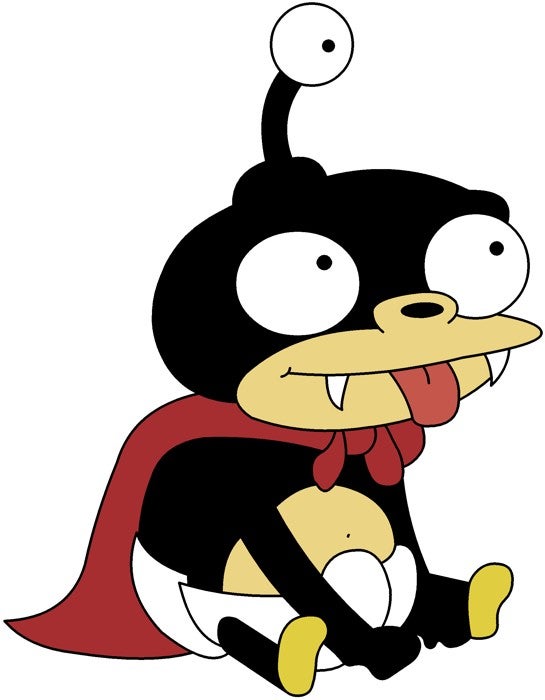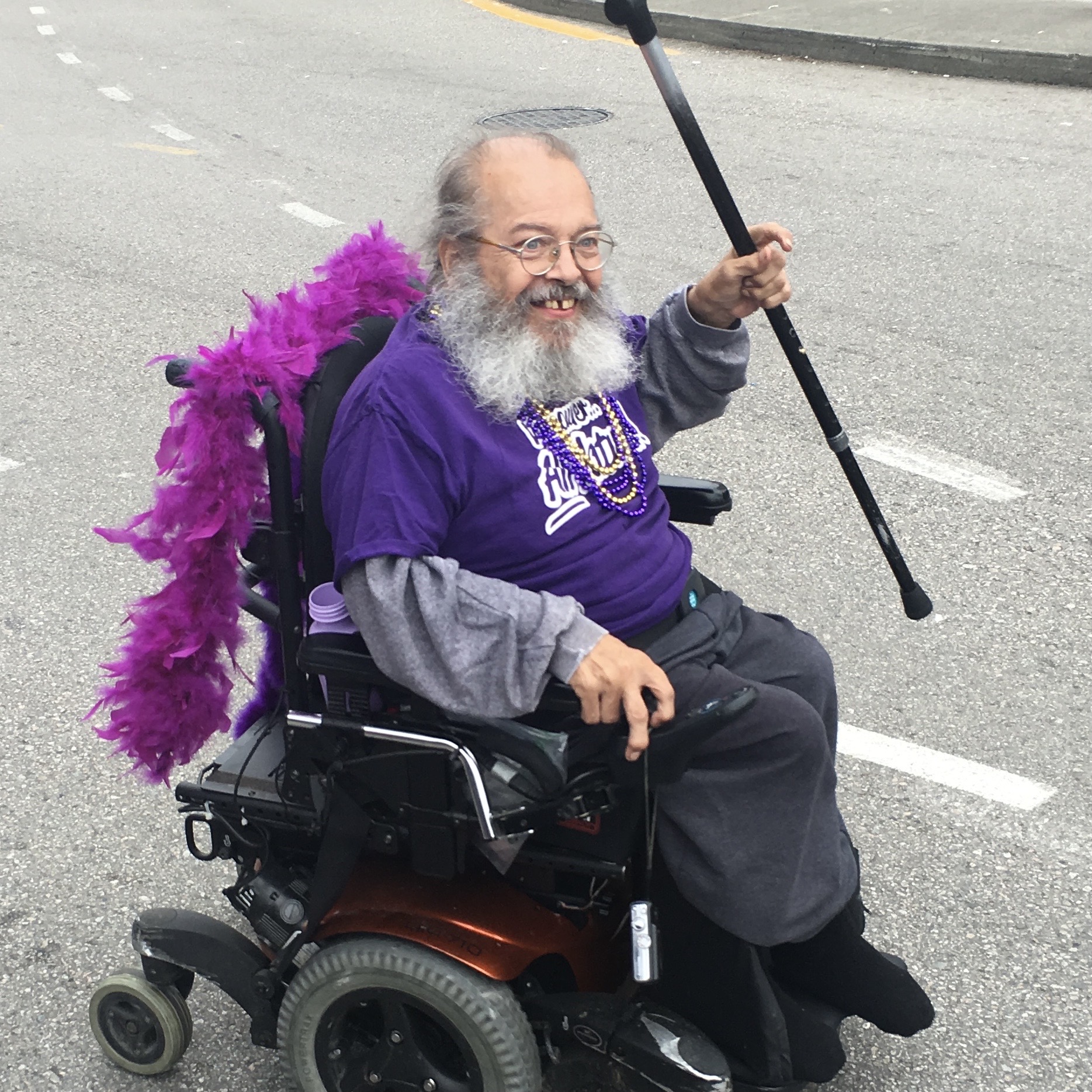Gender is a myth invented by toilet companies to sell more toilets.
It’s a little known fact that men were created in 1925 by a marketing company tasked with selling urinals.
It’s a manufactured problem by snowflake, conservative douchebags.
We just use the word “they” if we aren’t sure. The types upset by this are dumbasses.
Meanwhile in Japanese, you get to gender YOURSELF!
I’ve stopped learning Chinese when I left the country. I’ve only had HSK 2, but man do I miss no conjugation, you ate an apple pie for breakfast this morning? Well “This morning breakfast I eat an apple pie”.
You already told it was this mornings breakfast with context.
This is something you really see when discovering another language that is not yours. I’m on Modern Speaking Arabic right now and I see it a lot
Cries in HSK 0
Then you have Welsh where a lot of things are double affirmed in sentences removing ambiguity. even for the word yes you conjugate your reply as it depending on the quesrion they asked you.
Wyt. (Yes, you are. when asked as Am I?)
Ydw. (Yes, I am.)
Ydy. (Yes, he is.)
Ydy. (Yes, she is.)
Ydych. (Yes, you are. when asked as are We?)
Ydyn. (Yes, we are.)
Ydyn. (Yes, they are.)
How do you pronounce Ydw, Ydy and Ydych?
Oh boy, Welsh is fun. Y is sort of an UH sound, W is a OO sound and CH is A hard back of throat noise you make for the real scottish LOCH
Wait until you hear about languages where everything is gendered.
We’re currently debating, whether BürgerInnen, Bürger:innen or “Bürgerinnen und Bürger” is the proper way to address all citizens. This is not even about anything LGBTQ, it’s simply acknowledgement of the concept of non-male people (which is really hard for some conservatives).
I prefer the elimination of gender by using the participle because I think it’s easier to read and say, e.g. instead of Student:In you say Studierende (I guess also using the genderless plural of the participle, similar to the English concept). I’m not sure what the equivalent for Bürger would be though. Geborgene?
Why not just use the generic plural form (Bürger) as people always have? It has always been used for mixed groups so why shouldnt it continue to? And sometimes it doesnt even work (eg. for “Bauer”. The plurals would be “Bauern” and “Bäuerinnen”.
The problem people have with the Generischer Maskulinum is, that it is exactly that, the male plural form.
Grammatical genus is not the same as biological gender. Or do people that are biologically neither male nor female need a third plural form?
That would be another advantage if we had a form that clearly eliminates the gender.
In French we have a similar problem. Currently the most popular form is “citoyen.ne.s” or “citoyen.nes” (besides the good old “citoyens” or “citoyennes et citoyens”), which sometimes gets rendered as a website by some text displayers (e.g. les habitant.es). It’s technically supposed to be a middle dot (citoyen·ne·s) but nobody has that on their keyboard (I literally had to copy-paste it from wikipedia) so people use the point instead. We used to use parentheses like “citoyen(ne)s” but these have vastly be replaced by the dots.
Interesting. In German typography we used to use lower quotation marks at the beginning of a quote and lower quotation marks at the end of a quote, both in handwriting and print:
„Amazing“
But the lower version isn’t found on the default QWERTZ keyboard layout so in personal digital communication (instant messages, emails, etc) especially you find double upper ones a lot:
“Amazing” or ‘Amazing’
The formal spelling rules haven’t been updated and you may still find the lower-upper vision in professional publications where the software adjusts the quotation marks according to a global setting. But most anything that is typed directly by a user will use the lazy lower-lower version.
Spanish.
The Austrian state I used to live in (Niederösterreich) actually just outlawed gendering words like that on any government documents. Absolutely idiotic.
Portuguese! Even the f…ing objects are gendered!
“mmm this table looks quite feminine to me”
Is Bürger not just “citizens”
Male citizens.
Or, you know. Just Bürger, the generic masculinum. That all-inclusive. And it worked for a long time. It’s only because some snowflakes thought they needed something to complain about that we’re having this whole debate.
Der bre benutzt einfach “snowflakes” unironisch, was ist das, 2016?
Ja, Kumpel * in dud * in bro* sephine. Diese ganzen Gendersternverherrlicher innen brauchen einfach etwas worüber sie innen sich aufregen *innen könn *innen.
Ausserdem, bro *sephine, hast du mein Profil soweit durchgeschaut dass du rausgefunden hast dass ich männlich bin, oder hast du gerade mein Gender assumiert? Hier hättest du, um deinen eigenen Standards zu entsprechen, ein Genderneutrales Pronomen verwenden sollen, Bro *sephine.
Gerade nachgeschaut. In meinem Profil steht überhaupt nichts zu meinem Gender. Du hast also zwangsweise einfach mal so angenommen, dass ich ein Mann bin. Stimmt das mit deiner Ideologie überein?
Bro ist mir egal ob du den Stern nutzt oder nicht, du bist nur bissl cringe im Internet unterwegs und ich wollte mich drüber lustig machen.
Dass du da nen ganzen Paragrafen schreiben musstest, ist schon telling ne
No it’s not and there’s scientific evidence. Studies have shown that female children will name career paths as their dream job less often if only the male version is shown to them, presumably because they think it’s not an option for them, as it’s perceived to be only possible for males to follow that path. Explicitly mentioning both genders suddenly makes girls also want to become doctors.
You might not like it, but there’s enough evidence to show that it has merit.
“scientific evidence”.
Just like the ‘scientific evidence’ that, for whatever reason, in countries where women are way less free than in the west, many more women go into STEM?
According to https://de.statista.com/statistik/daten/studie/200758/umfrage/entwicklung-der-anzahl-der-medizinstudenten/ since at least 2010 there are way many more women studying medicine than men.
You might not like it, but just because it’s “Die” Sonne And “Der” Mond, That Does not suddenly mean that the moon is male and the sun is female, just how “Der Schüler” Does not imply that they are male or female.
This whole discussion about grammatical gender is stupid and biased as fuck by “researchers” who come to the conclusion they want to come to. I work in academia myself, I know how much bullshit gets pushed through.
Don’t get me wrong, I support anyone being able to do whatever they want. Women can do engineering just as much as men can, same for medicine and everything else. The literal only upside that men have is - on average - higher physical strength. And that just means that a higher percentage of men is strong enough to do certain physical job than the percentage of women. Doesn’t mean the women strong enough to do that job do it any worse than men.
Statista is a website that steals data from everywhere, it’s not a source as they don’t do any research.
They don’t have pronouns in my mom’s native language so when she talks to me in English, she always mixes up he and she and it can get really confusing.
In German:
Man = male (der Mann)
Woman = female (die Frau)
Boy = male (der Junge)
Girl = neutral (das Mädchen)
No idea why lol.
Also I’m learning French and everything has a gender but I don’t see any pattern to it at all. Pizza is female, books are male, a suitcase is female, hats are male and so on.
Also in French, the names of numbers go absolutely mental once you go above about 50. That’s got nothing to do with gender but I want to complain it whenever I can.
German is so weird. They came up with the concept of a neutral gender, but objects that obviously have no real gender (tables, boxes, sunglasses) don’t use neuter.
Like, what’s the process when they create a new word.
“Computer”… hmm, I think it’s female.
Nah, it’s neuter.
You guys are idiots, he’s obviously male!
Oh yeah, Gunther is right! Look at him!
Girl = neutral (das Mädchen)
No idea why lol.
Mädchen is a diminutive, and all diminutives are grammatically neutral.
It’s the same in Dutch btw, and my girlfriend who is learning Dutch is frequently abusing this as a cheat code: whenever she doesn’t know the gender of a word, she’ll just use the diminutive and it will automatically be neutral.
I just might have just learned smth about my native language.
My native language is genderless so I really dislike all the gendered grammar and words in different languages. English is very easy but in other cases when you start to have a male and a female version of each word which sometimes can be irregular and give you the clue that ohh yeah this should be male but noooo it’s female and in many cases there is just simply no logic behind them it is just the way they are.
German even has a neutral gender because two aren’t enough of a headache lol
Plus 4 cases which makes it so that there are 16 (Masc, Fem, Neutr, Plural X 4 cases) different ways of typing an article depending on the gender of the word and what the word is doing whereas in English this is all replaced by “The”. And don’t forget about declining the adjective and the noun in some cases.
Rant over.
And then like half of the articles are “der” and you just have to use context to figure out which one it is
Edit: I was randomly reminded of this graffiti I saw in Berlin:

So just get the whole country to use one “the”, simple 😎
The argument seems to be that, in a language with ungendered pronouns, all genders are included, so you don’t need neopronouns for the purpose of inclusion. Nevertheless, you could still replace an ungendered pronoun with a neopronoun to be more accurate, or for other purposes.
yeah debates over Neo-pronouns are always a really tedious Anglo-centric thing. it’s not something that the majority of trans people worldwide are even able to care about
I recently started very casually learning Chinese, this absolutely blew my mind along with the fact that verbs don’t have a billion different forms depending on time and the object of the sentence like all the other languages I know.
Oh gendered pronouns are fun in german.
Especially when combining the male and female version of a word to one gender neutral word.
For example doctor:
Arzt (male) + Ärztin (female) = ärzt’in (Singular) / ärzte’innen (Plural)
English should absolutely do this you’d end up with some really cool words. Also because Jodorowsky was absolutely right - emperoratrix is a fucking kickass title
Emperoratrix sounds really clunky to me, -atrix is the feminine counterpart to -ator. Imperator, dominator, navigator, etc. I’m particularly fond of the overextension that is ‘alligatrix’ myself.
Fine fine, then Emperoress instead. It’s what the actual English translation of The Incal uses
Why not ‘Empress’, I wonder? Nothing actually wrong with any of the options, just rings strangely to my ears.
Because the entire point was that the character in question is genderless and this was the early 80s and also French so more modern gender neutral terms didn’t exist yet, and “let’s just smash the two gendered endings together” was his attempt at one (I’m guessing emperoratrix comes from a literal translation from French, where a female emperor is an imperatrice, and -trice is -trix in english, so imperatorice -> emperoratrix) The book also uses s/he as a pronoun instead of they.
I mean hey, it’s much more gender neutral than just defaulting to the masculine like say Le Guin did in left hand of darkness
Interesting!
Are you sure? I think for plural it would be ärzt*innen, without the e, but i’m no expert
Could be i wasn’t sure about that one
I mean there are no formal rules on how to form a gender neutral noun yet afaik, but what you stated is the form that would be used most commonly. Ärzte’innen is definitely nothing that I’ve seen so far, especially with the ’ character. Usually * or : is used
I tried using the * but then my text just went bold so yeah
You’re right but tbh I think it’s so silly that using* stars has become the defacto politically correct way to address gendering in the first place. It’s such an eyesore
If you use it, I much prefer a :, like Arbeiter:innen.
It’s still dumb. When we’re at a point where we have to butcher our language with asterisks and colons to please Karens we’ve gotta admit that the language itself is heavily flawed.
Turns out English and Asian languages without gendered pronouns are simply superior
please Karens
what do you mean by that?
gotta admit that the language itself is heavily flawed
Are you proposing to get rid of the German language because it is flawed, instead of adapting it? First time i heard that idea
Honestly I wish English was less gendered than it is.
E.g. Nephew/Niece, why is there no proper gender-neutral one. This isn’t just for LGBTQ stuff, just seems silly to have everything gendered in general
See: Nibling
Nibbler?

In Finnish: hän = he/she. No need for gendered pronouns.
Wow! TIL this. I was under the impression that all European languages have gendered pronouns.
Finnish is unrelated to nearly all other European languages
Swedish has more in common with Hindi than it does Finnish, despite being neighbours
Me whose native language conjugates verbs and adjectives according to subject’s gender:
wasz język nie wymaga sprecyzowania płci podmiotu w każdym zdaniu?
Also Chinese kind of has gendered pronouns: 你 and 妳, both mean ‘you’ and are pronounced the same but the latter is used in writing to address females specifically. Though this is Taiwanese Mandarin-specific.
edit: 他她 as well obviously
Yeah Chinese isn’t a perfect example with the existence of 你妳 and 他她, etc. Though to be fair I’ve noticed native Chinese speakers get pretty confused by English pronouns and tend to mix them up since it’s mostly optional in Cheese.
Optional in cheese sounds like a lactose intolerant thing (my autocorrect tried putting in optimal and lacrosse, which was funny to me)
I was so confused when I saw your comment abou lactose intolerance and was wondering what it has to do with “optional in Chinese.” It took longer that I’d like to admit to realize that the original comment and yours said “cheese.”
How about Optimal Cheese Macross














